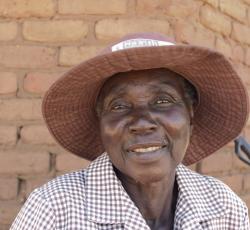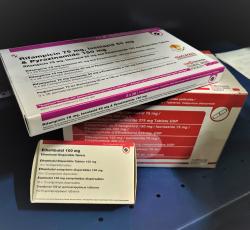By Vivian Mugarisi
While Tuberculosis (TB) treatment is “free” in Zimbabwe, patients are still encountering out-of-pocket payments when accessing services. More than 80% of those in need of TB services face catastrophic costs.[1] These costs include administration or registration fees, transportation cost to healthcare facilities and loss of income are among the hidden costs associated with TB management.
TB is often associated with poverty and the absence of a social protection net to cushion those affected, prevent many from seeking TB services when needed. These costs have seen some stopping from taking the full course, a situation which often leads to the development of drug resistant TB. The incidence of TB has remained high over the past few years. In Zimbabwe, it is estimated that 29 000 (about 1 person in 18 minutes) fell ill of TB in 2020 and about 8 010 (about 1 person every hour) of these succumbed to the disease. A total of 16,019 patients with TB were notified in 2020 and estimates suggest that close to 13,000 cases were missed in the same year. Of the diagnosed TB cases, 231 had drug resistant TB.
In response to this public health crisis, the Ministry of Health and Child Care (MoHCC) has trained Community Health Workers (CHWs) to be able to screen and refer suspected cases to the clinic. Those referred do not pay consultation fees with the slip provided by the CHWs acting as an exemption card for patients. The move, still in its infancy, is expected to increase the number of people seeking TB services
“We have been trained to screen for TB in communities and we know all the signs and symptoms. Whenever I have a suspected case, I write in my book and give the patient a slip they will use when they get to the clinic. Anyone with this slip won’t have to pay any consultation fee or what may be required for chest X-rays amongst other services done before diagnosis as usually done,” says Medrin Mbariro, a CHWs in Cowdray Park, a high density suburb in Bulawayo. “When they bring the slips from the CHWs, we waiver all the fees they would ordinarily pay and that has provided some form of relief to our clients,” added Sister Francisca Moyo, a Community Health Nurse at Cowdray Park Clinic.
Mbariro currently has 10 patients on TB treatment within her catchment area. One of the patients who has however finished the treatment course, Casper Kandiwa (63), confirmed to have been diagnosed of TB after Mbariro’s screening and referral. He says he was very glad after he was requested not to pay the consultation fee and other costs required before diagnosis.
“I had a prolonged cough and was losing weight. I was then told I was exhibiting TB symptoms by the CHW so she referred me to the clinic with a slip. I got assisted free of charge. Tests were done and was confirmed to have TB on my spinal cord,” he said.
Communities have played a major role in Zimbabwe’s TB response. Figures from 2020 suggest that at least 12% of the notified TB cases were referred by the communities. The support groups, awareness campaigns and active searches for TB cases often conducted by CHWs have led to an increase in early referrals of presumed cases as well as providing psychosocial and treatment adherence support for patients in care.
“We have tried to introduce a number of initiatives to remove the costs that hinder access to services for TB patients in particular but implementation has been very slow,” notes MoHCC, Director AIDS and TB Dr Owen Mugurungi. “What we require is more funds for the health sector so that we can have more funds for TB. Once we have that, all the hidden costs around TB falls away,”
Through implementation of the National TB Strategic Plan (TB NSP) (2021-2025), Zimbabwe aims to promote access to high-quality, patient-centred TB prevention, diagnosis and treatment services for all Zimbabweans with all forms of TB in line with the Universal Health Coverage (UHC) goals. The country aims to have reduced the incidence of all forms of TB by 80% from 242/100,000 in 2015 to 48/100,000 by 2025. Furthermore, the goal is also to reduce mortality of all forms of TB by 80% from 40/100,000 in 2015 to 8/100,000 by 2025.
WHO is working closely with MoHCC, partners and civil society in scaling up the TB response in line with the Sustainable Development Goals (SDGs), End TB Strategy among other high level global commitments. WHO is also providing guidance to end TB through strategy development, political and multi-sectoral engagement, strengthening review and accountability, advocacy, and partnerships, including with civil society.
“There is need for all partners to continue to provide both technical and financial support to the MoHCC’s National TB Programme if set targets are to be achieved. The External Evaluation of the TB programme conducted recently through support from CHAI, the Global Fund, USAID, WHO and all TB partners in the country, provides an opportunity for the country re-align priorities to enable acceleration of the response to achieve set targets,” says WHO, Technical Officer for TB and HIV Dr Mkhokheli Ngwenya.
With budget preparations already underway for 2023, more resources should be channelled towards the health sector to ensure all the costs associated with TB services falls away. Expanding access to TB-related services through ensuring non-payment will improve TB treatment outcomes, reduce the development of drug resistance due to treatment interruption, subsequently reduce ng the burden of TB in Zimbabwe.

